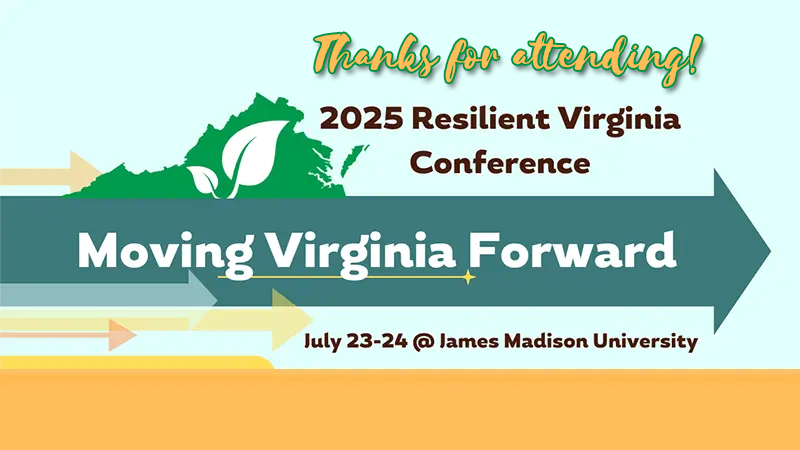
2025 Resilient Virginia Conference
The 2025 Resilient Virginia Conference will deliver tools, information, and networking opportunities to help you build resilience and move your community forward.
Accelerating resiliency planning in communities across the Commonwealth

The 2025 Resilient Virginia Conference will deliver tools, information, and networking opportunities to help you build resilience and move your community forward.
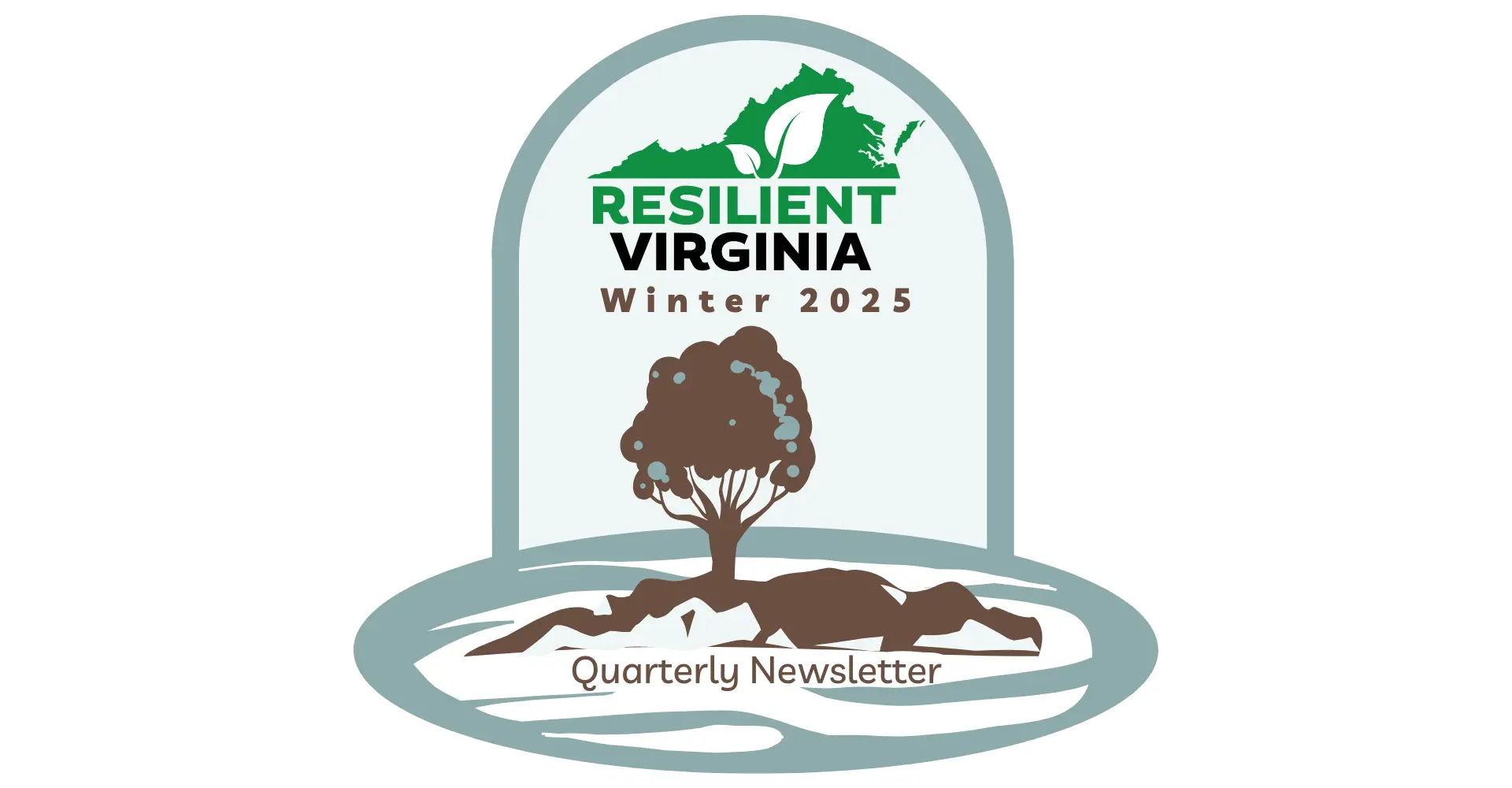
Meet Jessica Steelman, Resilient Virginia’s Executive Director … Resilient Virginia Events … Program and Project Updates … Board of Directors Updates … Community Flood Preparedness Fund Grants … VDEM Announces Application Period for BRIC and FMA Grants … GHHI’s Thriving Communities Grantmaking Program … Climate Smart Communities Initiative … more.
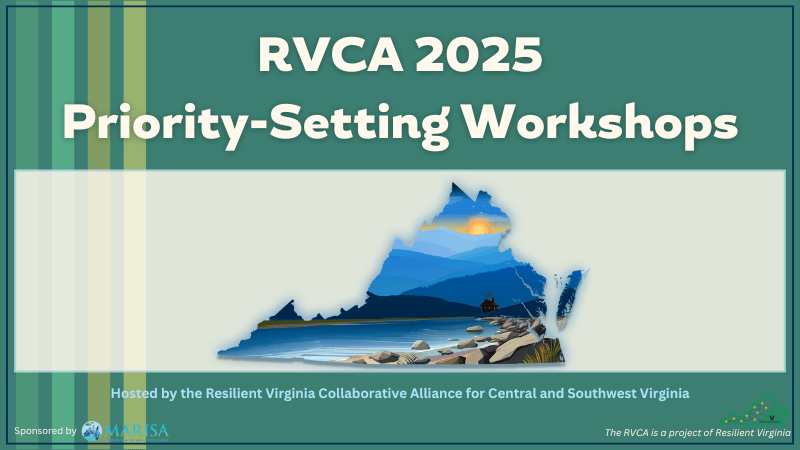
Strengthening the Voices of Rural Communities in Central and Southwest Virginia Resilient Virginia is proud to announce our RVCA 2025 Priority-Setting Workshop series for Central

Resilient Virginia has issued an RFP for a part-time Community Engagement Consultant for work in Lynchburg, Va.
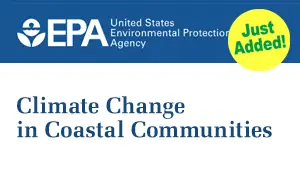
US EPA maintains a website that focuses on essential information for coastal communities planning for the effects of climate change.
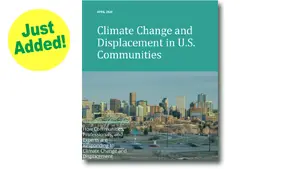
EcoAdapt conducted a survey with the Strong, Prosperous, and Resilient Communities Challenge to determine if and how people working to address displacement pressures are considering the effects of climate change. This survey is part of a broader project in collaboration with the Urban Displacement Project to better understand the intersections between climate change and displacement pressures.
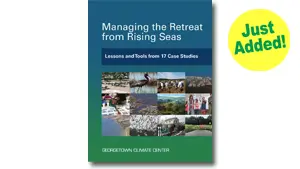
Managed retreat is the coordinated process of voluntarily and equitably relocating people, structures, and infrastructure away from vulnerable coastal areas in response to episodic or chronic threats to facilitate the transition of individual people, communities, and ecosystems (both species and habitats) inland.
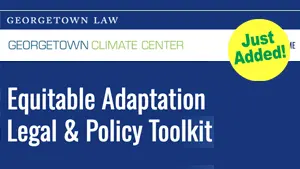
The Georgetown Climate Center maintains the Equitable Adaptation Legal & Policy Toolkit, which highlights best and emerging practice examples of how cities are addressing disproportionate socioeconomic risk to climate impacts and engaging overburdened communities.
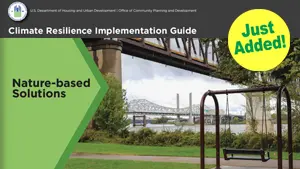
The Climate Resilience Implementation Guide provides step-by-step instructions to assist communities in implementing nature-based solutions. Grantees are encouraged to use this Guide for suggestions on how to effectively use Community Planning and Development (CPD)-funded programs and other resources to design and implement nature-based solutions.

The 2025 Resilient Virginia Conference will deliver tools, information, and networking opportunities to help you build resilience and move your community forward.

Meet Jessica Steelman, Resilient Virginia’s Executive Director … Resilient Virginia Events … Program and Project Updates … Board of Directors Updates … Community Flood Preparedness Fund Grants … VDEM Announces Application Period for BRIC and FMA Grants … GHHI’s Thriving Communities Grantmaking Program … Climate Smart Communities Initiative … more.

Strengthening the Voices of Rural Communities in Central and Southwest Virginia Resilient Virginia is proud to announce our RVCA 2025 Priority-Setting Workshop series for Central

Resilient Virginia has issued an RFP for a part-time Community Engagement Consultant for work in Lynchburg, Va.

US EPA maintains a website that focuses on essential information for coastal communities planning for the effects of climate change.

EcoAdapt conducted a survey with the Strong, Prosperous, and Resilient Communities Challenge to determine if and how people working to address displacement pressures are considering the effects of climate change. This survey is part of a broader project in collaboration with the Urban Displacement Project to better understand the intersections between climate change and displacement pressures.

Managed retreat is the coordinated process of voluntarily and equitably relocating people, structures, and infrastructure away from vulnerable coastal areas in response to episodic or chronic threats to facilitate the transition of individual people, communities, and ecosystems (both species and habitats) inland.

The Georgetown Climate Center maintains the Equitable Adaptation Legal & Policy Toolkit, which highlights best and emerging practice examples of how cities are addressing disproportionate socioeconomic risk to climate impacts and engaging overburdened communities.

The Climate Resilience Implementation Guide provides step-by-step instructions to assist communities in implementing nature-based solutions. Grantees are encouraged to use this Guide for suggestions on how to effectively use Community Planning and Development (CPD)-funded programs and other resources to design and implement nature-based solutions.
The Lincoln Institute of Land Policy’s Consortium for Scenario Planning is hosting its ninth annual conference February 4–6, 2026, at the University of Utah in Salt Lake City, Utah. Cohosted by the Lincoln Institute, the…
Resilient Virginia Collaborative Alliance Agriculture Working Group monthly meeting. Anyone is welcome to join the conversation!
RVCA Agriculture Working Group
Thursday, October 23 · 11:00am – 12:00pm
Time zone: America/New_York
…
Resilient Virginia’s 2026 Resiliency Academy is a 10-session webinar series designed to help communities understand change, reduce risk, and build long-term resilience using practical, systems-based, and equity-centered approaches.
Virginia is facing growing challenges from sea-level rise, recurrent flooding, extreme heat, and economic disruption—making coordinated resilience planning more essential than ever.
Beginning in 2026, Resilient Virginia will launch the Resilience Foundations Certificate Program, a first-of-its-kind professional development initiative that brings together leaders from government, business, academia, and community organizations to advance systems-level resilience across the Commonwealth.
The Power of Partnership … Spotlight On Webinar Series … Resilience Certificate Survey … Interactive StoryMaps Advance Climate Equity … RVCA Updates … Tackling Emerging Contaminants Water Technical Assistance … Closing America’s Wastewater Access Gap Initiative … Firewise Virginia Community Hazard Mitigation Grant Program … more.
VCU RISE has launched interactive StoryMaps to highlight environmental justice issues in Charles City County, Emporia, and Richmond. Learn how these equity-focused tools blend local data, maps, and community stories to support planning, resource access, and climate resilience.